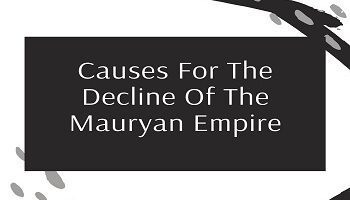Table of Contents
Histography with regard to Muhammad-Bin-Tughlaq:
Muhammad-Bin-Tughlaq stands as a controversial figure owing to his unconventional nature of the action. The chief authority of his reign is Ziauddin Barani who gives a comprehensive study of the life of the sultan. However, Barani, who was a reactionary in politics and a traditionalist in religious matters, could hardly appreciate the objectives of a ruler who belonged to an entirely different category being progressive in religion and innovative in politics.
The evaluation of the personality of Muhammad-Bin-Tughlaq has been an important issue in medieval historiography, mainly because contemporary scholars like Barani, Isami and Ibn Batuta are prejudiced towards him.
Barani appears to be upset at his rational approach in the matter of religion as Barani was an orthodox Sunni Musalman. Likewise, Isami is not just towards him as Isami was the historian of Bahman Shah, an arch-enemy of Muhammad-Bin-Tughlaq. On the other hand, Ibn Batuta is grieved because although earlier he was given fair treatment and offered the post of Qazi at Delhi but later on the corruption charges he was put into jail.
These contemporary scholars produced a negative picture of Muhammad-Bin-Tughlaq. Then, even some modern scholars accepted the view of contemporary scholars uncritically. As a result of this, Muhammad-Bin-Tughlaq was projected by certain scholars as a mad sultan.
Positive Aspects of Muhammad-Bin-Tughlaq’s Character:
But when we observe minutely we come to know about a lot of achievements of his period. He created a big empire and considering its requirement he even started to do something for developing a second capital. He took some measures for administrative efficiency in order to have better control of the centre of the province (Iqta). He started to appoint the officer like Amil who had to supervise the account of Iqta. Furthermore, as a measure of check and balance, he preferred to appoint two officers of equivalent status in Iqta. These were Mukti (general administration) and Wali-ul-Kharaj (collection of revenue).
A unique thing in the policy of Muhammad-Bin-Tughlaq was his reliance on a group of people but not purely on the Turkish nobility. The Turkish nobility had collapsed during the days of Alauddin Khalji. So, Muhammad-Bin-Tughlaq began to raise a new order of nobility. Muslims coming from various parts of the world as well as some converted Muslims and Hindus were elevated to the status o nobility. This speaks of his unorthodox approach to the problems of the day.
Muhammad-Bin-Tughlaq adopted some progressive economic measures. He started agriculture on scientific lines (on the basis of rotation of crops in the doab region). Secondly, he experimented with token currency. So it appears that he was having a world outlook. He was having a very fertile and imaginative mind, he always thought ahead of his time. In order to encourage foreign trade, he made a curtailment in import duty. Furthermore, he welcomed in his court foreign dignitaries in large number.
He was very liberal in his state policy. He opened the gate of nobility class not simply for non-Turks and Indian Muslims but also for Hindus. In the matter of religion, he was liberal. This phenomenon has been approved even by Barani. He was so much radical that he even brought Ulemma Class under judicial purview.
He was the first sultan of Delhi who visited the Dargaha of Seikh Muinuddin Chisti. He even visited some Hindu and Jaina temples at Mount Abu and gave them a donation. He used to participate even in the Hindu Festival, Holi.
Negative Aspects of Muhammad-Bin-Tughlaq’s Character:
But there was another side of the coin as well. We underline certain weakness in his personality. He appears to be hot and hasty in his nature. Without considering the consequences he was very quick in making lofty plans. His implementation side was much poor. It is said that for his failure it was his officers and people who were chiefly responsible because they couldn’t understand his lofty plans but when we observe deeply we find that for his failure even he was not less responsible because he was quite unable to feel the pulse of his people and his officers, He was not having the knowledge of their psychology. As his plans and their poor implementation produced a negative impact on the state and the people, so he turned to be a failure in Indian history.









Comments (No)